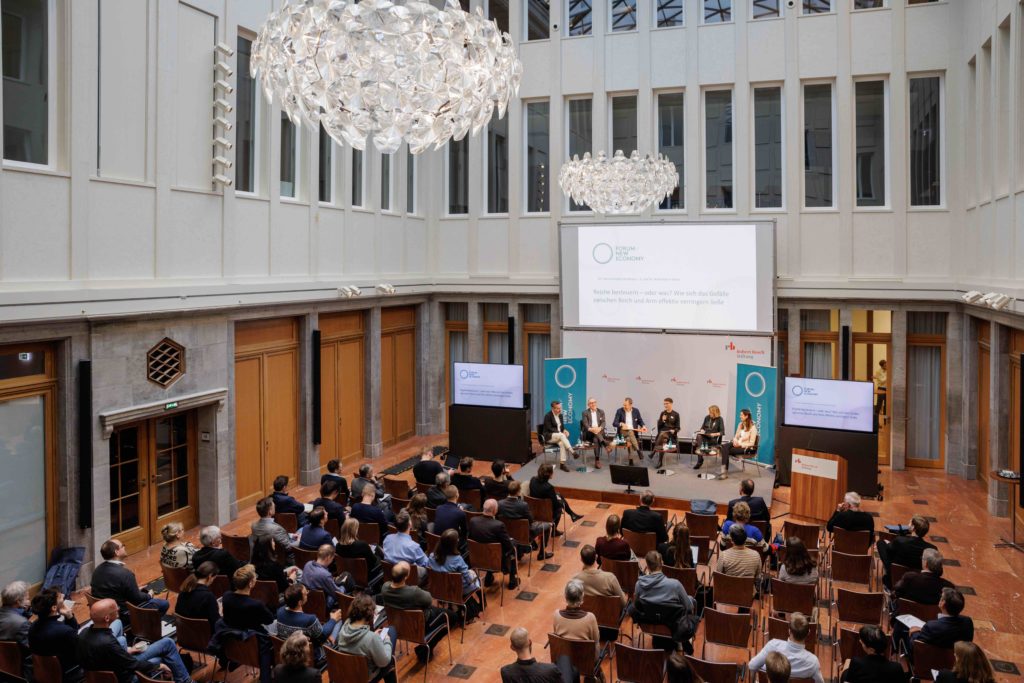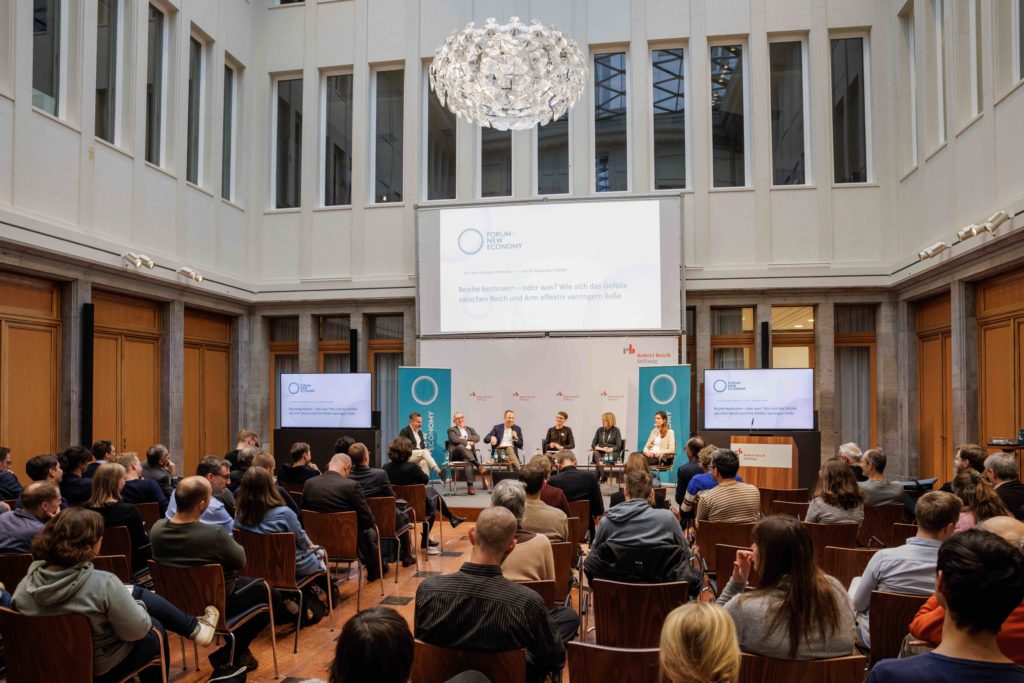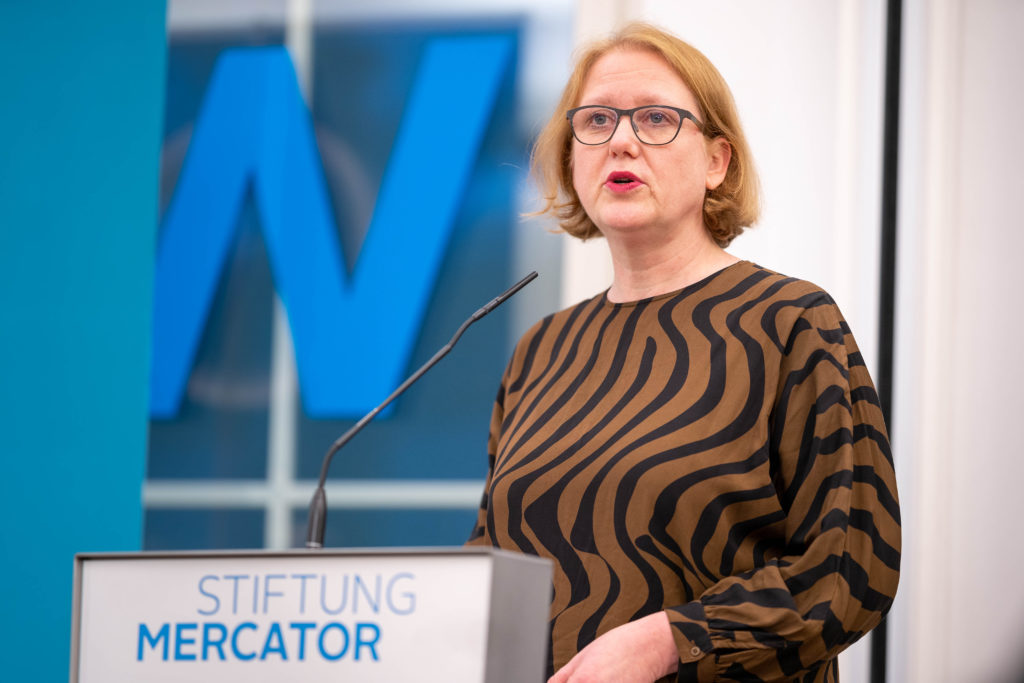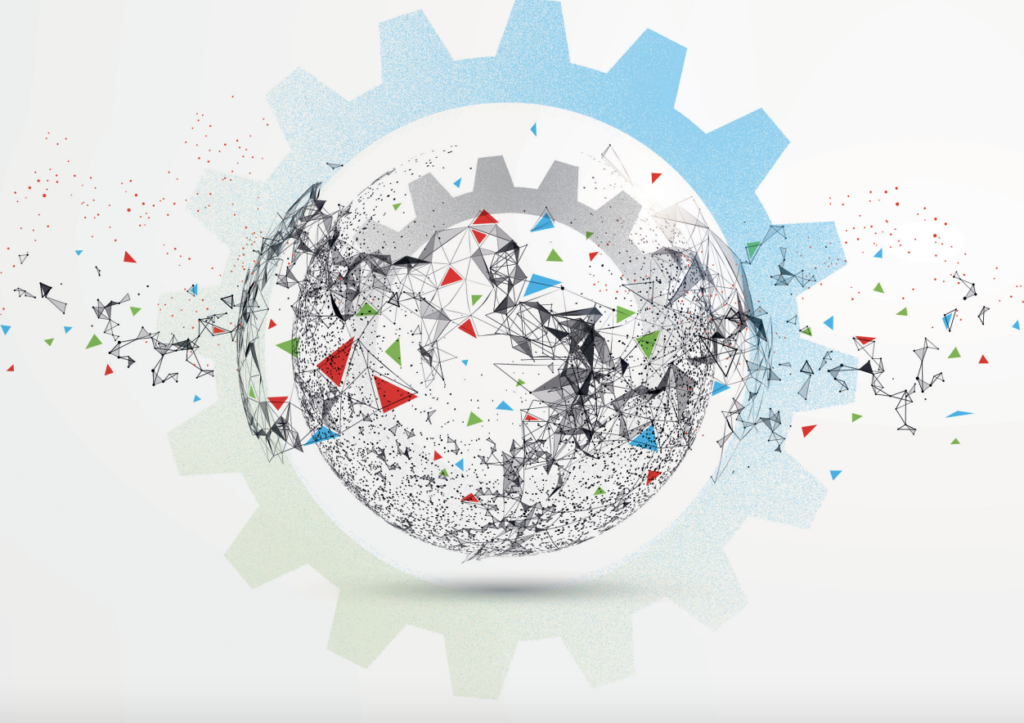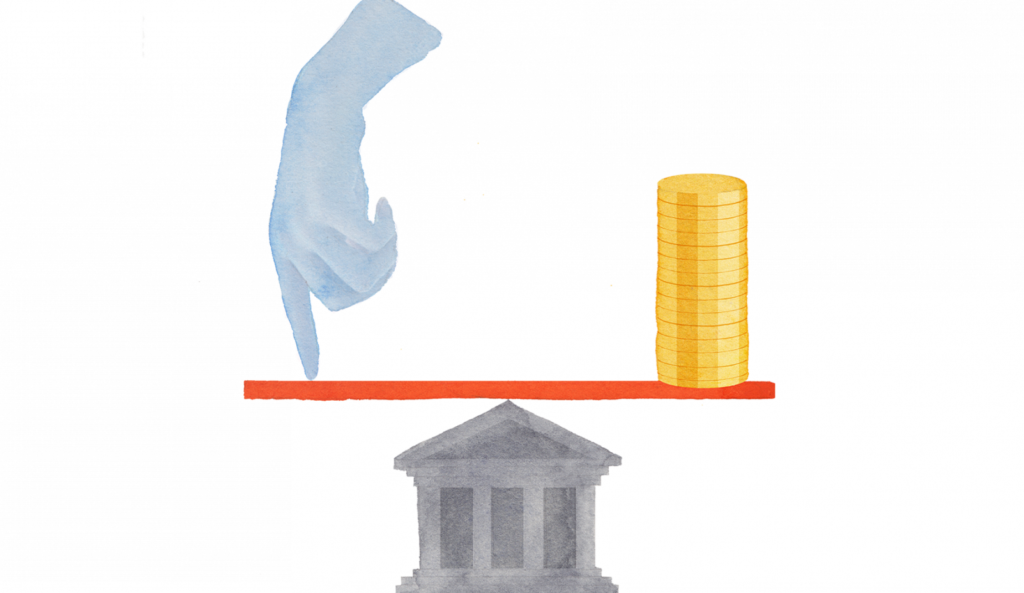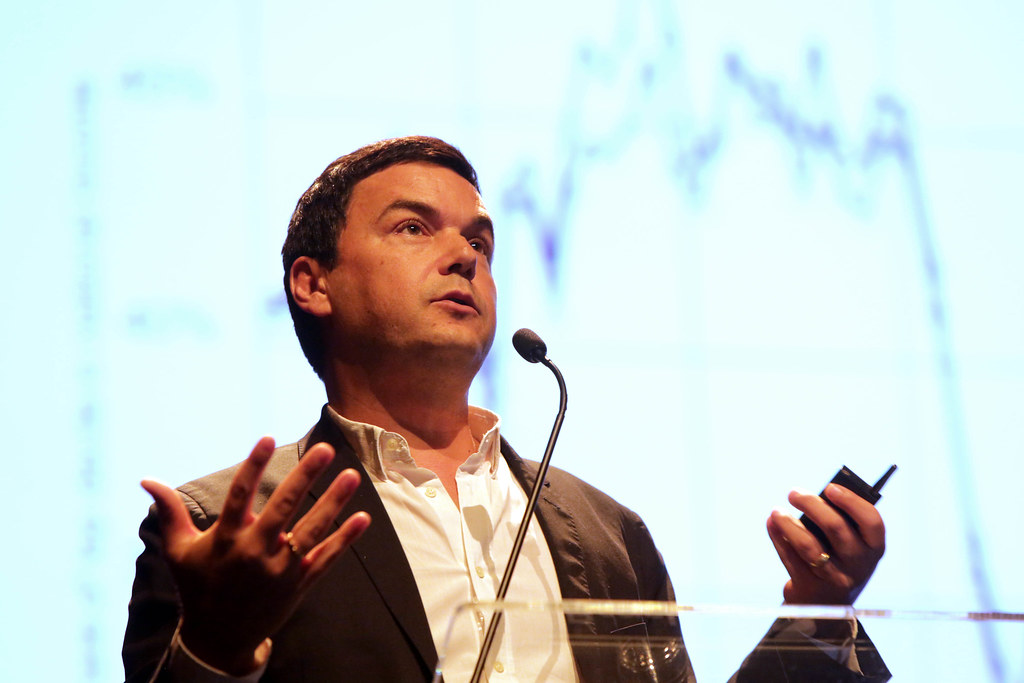






Reducing
inequality
REDUCING
INEQUALITY
The rising gap between rich and poor has become a threat to social cohesion in most rich countries. To reverse this trend it will be crucial to better understand the importance of different drivers of income and wealth inequality.
LATEST NEWS
Is an Inheritance Tax Useless After All? Re-Cap for the Launch of Our Wealth Simulator
From our Forum New Economy newsletter series
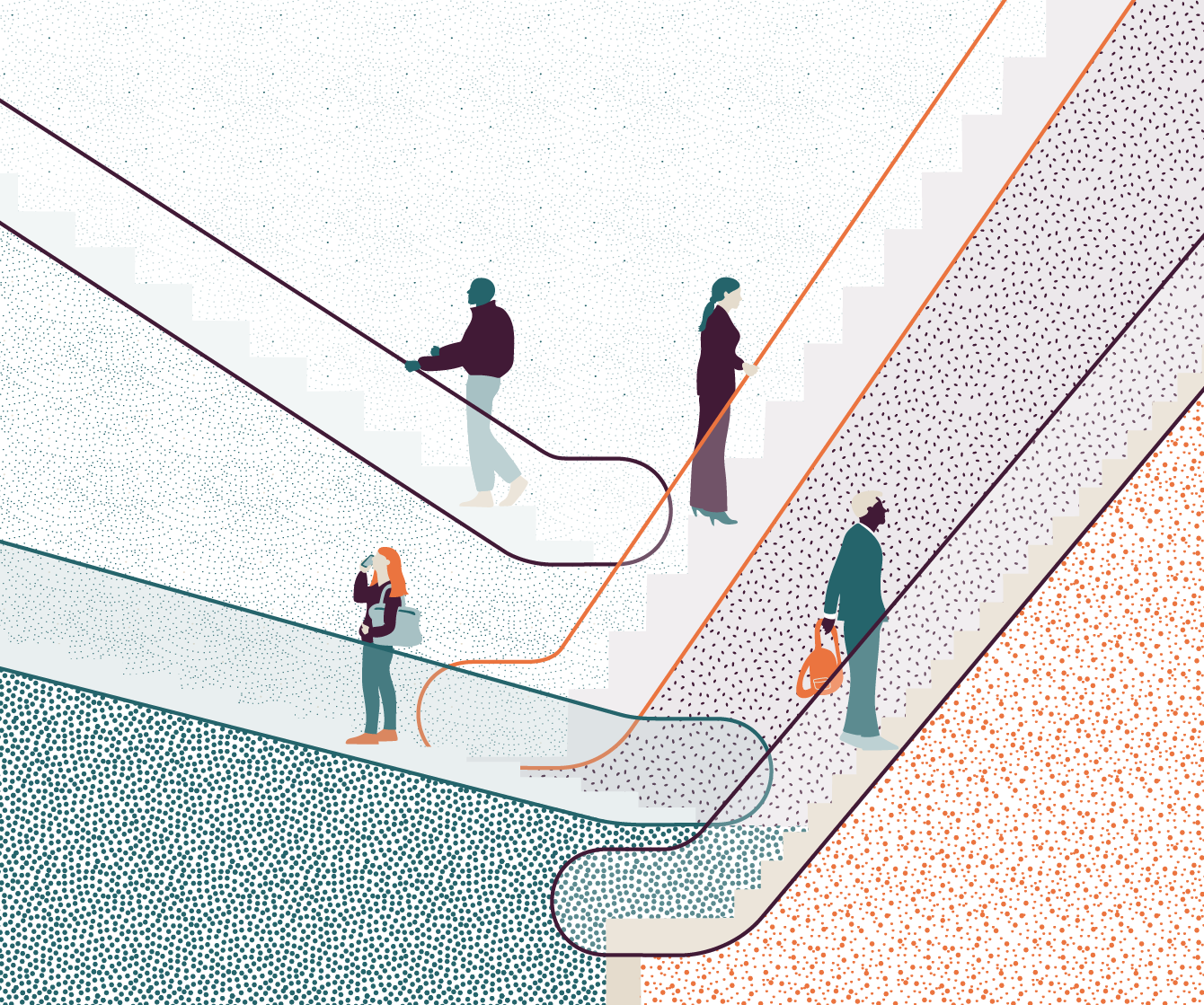
KNOWLEDGE BASE
REDUCING
INEQUALITY
The Challenge
Inequality in advanced countries, such as Germany, has reached levels of 100 years ago.
What Went Wrong
It is often repeated that inequality is just a transitory phenomenon and is necessary for dynamism and economic growth.
New Economy in Progress
Inequality is a political choice, produces discontent and can even lead to financial instability.
5 WAYS THAT ARE DISCUSSED TO REDUCE INEQUALITY
INCOME INEQUALITY AND GROWTH IN EUROPE, 1989-2017, BLANCHET ET AL. (2019).
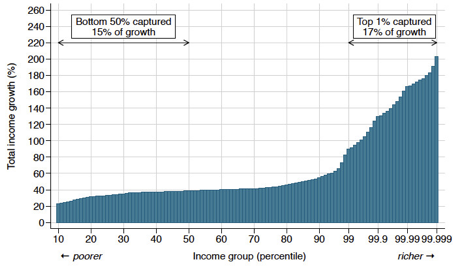
Event: Is the Shortage of Skilled Workers Narrowing the Gender Pay Gap?
Is now the time for women to close the wage gap?
New Stiglitz Study: Using Capital Taxes to Fund Public Investment
Researchers around nobel laureate Joseph Stiglitz have proven in a new study that taxing capital to fund public investment reduces wealth inequality without compromising growth.
Inequality in Germany - Policy measures to reverse the trend
The Forum New Economy Working Paper series sees its latest addition: a paper that reviews trends and drivers of income and wealth inequality in Germany, and derives possible policy options.
New Paradigm Knowledge Base - Update on inequality
What policies can help against rising inequality? How are inequality and central bank policies connected? Why is redistribution not enough to deal with populism?
Inequality in Germany – How to reverse the trend
Is there only a perceived divergence of income and wealth in Germany? The factual situation and the assessment of concrete policy measures at the VIII. New Paradigm Workshop.
New Studies out now: What Drives Inequality in Germany?
In a two-part study commissioned by Forum New Economy, Charlotte Bartels and Carsten Schröder investigate the state of inequality and its drivers.
DIW-Study Shows Unimagined Level of Inequality
Wealth inequality in Germany is even higher than estimated. That shows a new DIW-study which uses a new data mechanism.
How unequal Germany really is
Is the drifting apart of income and wealth real - or just scaremongering? This has been the subject of debate in this country for years. The Forum New Economy has commissioned leading researchers to compile the empirical evidence. First part of the study.
The State of Inequality in Germany
What are the recent trends in income, consumption and wealth inequality in Germany? Charlotte Bartels and Carsten Schröder review the literature in a new study commissioned by Forum New Economy.
The Distribution of Wealth in Germany, 1895 to 2018
A new study by Thilo Albers, Charlotte Bartels and Moritz Schularick for the first time assesses the long-run evolution of wealth inequality in Germany.



